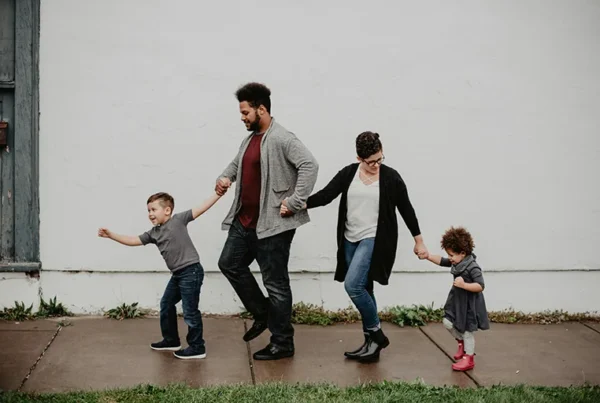Child custody is often one of the most emotional and complex aspects of divorce for parents. If you’re going through a divorce in Blacksburg, VA, the thought of a custody evaluation may feel overwhelming. However, understanding how the process works and preparing for it can ensure your voice is heard—and most importantly, protect your child’s best interests.
This blog breaks down everything you need to know about child custody evaluations in Virginia, with actionable insights to help you feel more prepared and confident in approaching this process.
What is a Custody Evaluation in Virginia?
A custody evaluation is a formal investigation conducted to assess what type of custody arrangement best serves the child. It involves gathering evidence, interviewing parents, and assessing each parent’s ability to meet the child’s emotional, financial, and physical needs.
Virginia courts prioritize the well-being of the child above all else. A custody evaluation helps the court decide whether sole custody, joint custody, or another arrangement is best. This becomes particularly important if parents cannot agree on their own, making the evaluator’s report a critical piece of evidence.
When is a Custody Evaluation Necessary?
Custody evaluations are typically ordered by the court when parents cannot reach an agreement about custody or when concerns are raised about one parent’s ability to provide a safe and supportive environment. If issues like domestic violence, substance abuse, or neglect are alleged, a custody evaluation ensures the court has all the facts before making a decision.
Even if no accusations are involved, a judge may deem it useful to get an impartial, professional perspective on what arrangement serves the child’s long-term interests.
Who Conducts the Evaluation?
A custody evaluation is usually performed by a licensed professional, most often a psychologist,s. These evaluators are neutral third parties assigned by the court or recommended by the parents’ attorneys. Their role is to offer an objective analysis that supports the best interest of the child, not advocate for either parent.
What Does the Custody Evaluation Process Look Like?
Step 1: Initial Interviews
The custody evaluator will typically begin with interviews. These may include individual meetings with each parent, as well as joint sessions with the parents together. Topics often discussed include your parenting methods, family routines, and the current relationship dynamics.
Step 2: Observing Parent-Child Interactions
Evaluators pay careful attention to the relationship each parent has with the child. They may observe how you interact during designated parenting time—whether it’s playing, helping with homework, or managing behavioral issues.
Step 3: Gathering Collateral Information
Evaluators may collect additional evidence, such as school records, medical reports, and even statements from teachers or caregivers. This data gives a well-rounded view of your child’s needs and how each parent addresses them.
Step 4: Psychological Testing
Though it doesn’t always happen, some custody evaluations may involve psychological testing to assess each parent’s emotional stability or ability to parent effectively. This is often used if concerns such as anxiety, addiction, or trauma are raised.
Step 5: Final Report
At the end of the evaluation, the evaluator will compile their findings into a written report. This document is submitted to the court and includes recommendations about custody arrangements based on the child’s welfare.
What Factors Do Evaluators Consider?
Virginia law outlines specific factors that custody evaluators and courts must consider, including:
- The child’s age, needs, and relationships: Evaluators assess a child’s developmental needs and the emotional bond they share with each parent.
- Each parent’s ability to meet those needs: Financial stability, parenting capabilities, and willingness to co-parent all play a role.
- The child’s preference: If the child is mature enough (typically aged 12 or older), the evaluator may listen to their wishes.
- History of abuse or neglect: Any evidence of physical, sexual, or emotional abuse is heavily weighed.
By addressing these factors in your custody evaluation, you offer the court a clearer picture of your suitability as a custodial parent.
How Can Parents Prepare for a Custody Evaluation?
1. Be Honest and Authentic
Evaluators value transparency. Be truthful about your strengths as a parent and acknowledge areas where you may have room for growth. Avoid exaggerating your ex-spouse’s flaws; focus instead on highlighting how you meet your child’s needs.
2. Keep a Detailed Record
Document key information, such as your child’s medical appointments, extracurricular schedules, or correspondence between you and the other parent. Showing that you are organized can strengthen your case.
3. Maintain Positive Behavior
During this process, your actions will be closely observed. Avoid any behavior that could potentially harm your case, such as speaking negatively about your co-parent in front of your child or engaging in unnecessary conflict.
4. Focus on Your Child’s Well-being
Approach the evaluation with a genuine focus on your child’s happiness and health. Demonstrating your commitment to their best interests speaks volumes during the process.
Can the Custody Evaluation Be Challenged?
Yes. While the evaluation report often carries significant weight in court, it is not the final say. If you believe the evaluator’s findings are flawed or incomplete, your attorney can cross-examine the evaluator during a hearing or arrange for a second opinion.
Having an experienced Virginia family lawyer ensures any disputes about the evaluation process are handled in a way that reinforces your position as a responsible parent.
How Long Does the Process Take?
The length of a custody evaluation varies depending on the case’s complexity. On average, evaluations in Virginia take between 2 to 6 months. While this may seem like a long time, remember that the goal is thoroughness. Every detail helps the court craft an arrangement that supports your child’s well-being.
What Should You Do After the Evaluation?
Once your evaluation is complete, take time to review the report with your family attorney. The recommendations should give you a clear sense of the evaluator’s perspective and how to present your case in court. Work with your attorney to address any concerns raised in the report and devise a strategy for demonstrating your strengths as a parent.
Need Support with Your Custody Evaluation? Contact Slovensky
Custody evaluations often feel stressful, but knowing how they work and what steps to take can make a significant difference. At Slovensky Law Firm, we’re committed to supporting parents in Blacksburg, VA, throughout every phase of their child custody cases. Whether you need guidance on how to approach the evaluation process or representation in court, we’re here to help.
Call us today to schedule your consultation and ensure your family’s future is in good hands.



